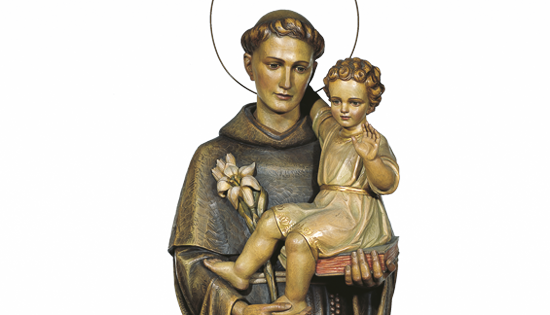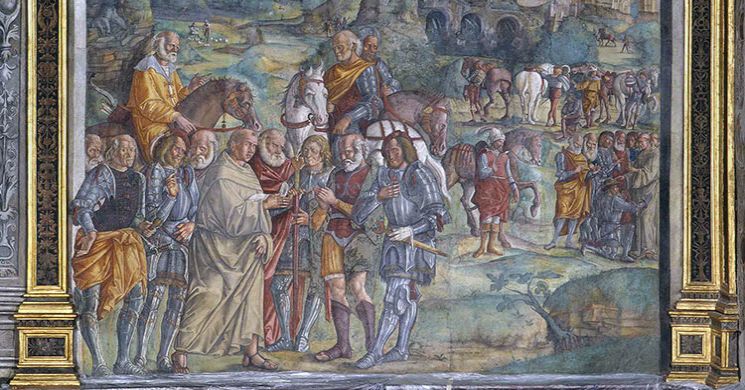Anthony always defended those who were powerless and incapable of defending themselves. He proclaimed the dignity of every person. He did this not only while he was preaching to the crowds, but also when he stood before those who were known to be cruel tyrants. One of his contemporaries writes, ‘Anthony, who had so avidly desired to die a martyr, did not give in to anyone, even if it might cost him his life; with enormous courage he resisted the tyranny of the mighty. He stood up to certain powerful figures so firmly that other preachers, even the most famous, trembled before his resolution and were smitten with fear.”
Far from closing himself behind the safe and tranquil walls of an abbey library as he had in his earlier years, Anthony now bore witness to the truth in the corridors of power and in the market places of his world. He proved that the Gospel was alive and relevant to the men and women of his times. The most famous story concerning his political courage involves a certain Ezzelino da Romano. Ezzelino belonged to the political party known as the Ghibellines. Both they and their opponents, the Guelphs, were famous for their conniving and blood-thirstiness, and Ezzelino was considered by all to be a master in the art of treachery. Ezzelino was holding certain Guelphs as prisoners, threatening to execute them. Anthony courageously stood before him and called him to conversion. He repented his ways, only to turn back to his old tricks after Anthony had left.


